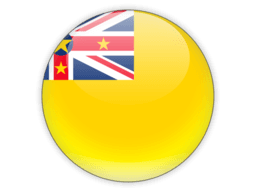
Cities of Niue
Discover 1 cities across 0 regions
Other Cities (1)
Niue is a small island nation located in the South Pacific Ocean, east of Tonga and west of the Cook Islands. It is one of the world's smallest independent countries in terms of both land area and population. The island is about 260 square kilometers in size, with a population of around 1,600 people.
Niue was originally settled by Polynesians over 1,000 years ago, and was later colonized by European powers in the 19th century. The island became a British protectorate in 1900 and was later annexed by New Zealand in 1901. In 1974, Niue became a self-governing territory in free association with New Zealand.
Niue's economy is largely based on agriculture, fishing, and tourism. The island's unique ecosystem, which includes coral reefs and rainforests, attracts visitors from around the world. Niue is also known for its traditional arts and crafts, including weaving, carving, and pottery.
The people of Niue are primarily Polynesian, with a strong cultural heritage that is reflected in their music, dance, and other arts. The official languages are Niuean and English, and the island has a strong educational system that includes primary and secondary schools as well as a campus of the University of the South Pacific.
Despite its small size, Niue has its own government, with a premier and a 20-member legislative assembly. The island also maintains diplomatic relations with other countries, including New Zealand, Australia, and the United States.
Geography
Area
total: 260 sq km
land: 260 sq km
water: 0 sq km
Climate
tropical; modified by southeast trade winds
Natural resources
arable land, fish
People and Society
Population
2,000 (July 2022 est.)
Ethnic groups
Niuean 65.4%, part-Niuean 14%, non-Niuean 20.6% (2017 est.)
Languages
Niuean (official) 46% (a Polynesian language closely related to Tongan and Samoan), Niuean and English 32%, English (official) 11%, Niuean and others 5%, other 6% (2011 est.)
Religions
Ekalesia Niue (Congregational Christian Church of Niue - a Protestant church founded by missionaries from the London Missionary Society) 61.7%, Church of Jesus Christ 8.7%, Roman Catholic 8.4%, Jehovah's Witness 2.7%, Seventh Day Adventist 1.4%, other 8.2%, none 8.9% (2017 est.)
Population growth rate
-0.03% (2021 est.)
Government
Government type
parliamentary democracy
Capital
name: Alofi
Economy
Economic overview
upper-middle-income self-governing New Zealand territorial economy; massive emigration; postage stamps, small-scale agricultural processing, and subsistence farming; depends on New Zealand subsidies; EU preferential market access not utilized
Real GDP (purchasing power parity)
$10.01 million (2003 est.)
Real GDP per capita
$5,800 (2003 est.)
Agricultural products
coconuts, taro, fruit, sweet potatoes, tropical fruit, yams, vegetables, lemons, limes, bananas
Industries
handicrafts, food processing
Exports
$201,400 (2004 est.)
Exports - partners
Indonesia 92%, South Korea 5% (2019)
Exports - commodities
tanker ships, fruit juice, thermostats, textiles, measurement devices/appliances (2019)
Imports
$9.038 million (2004 est.)
Imports - partners
New Zealand 43%, United Kingdom 30%, Japan 22% (2019)
Imports - commodities
hydraulic engines, ships, refined petroleum, cars, plastics (2019)
International Airports in Niue
Discover 1 major airports serving Niue
Mark Niue as Visited
Add Niue to your personal travel map and track your journey around the world. Share your adventures and see your progress grow!